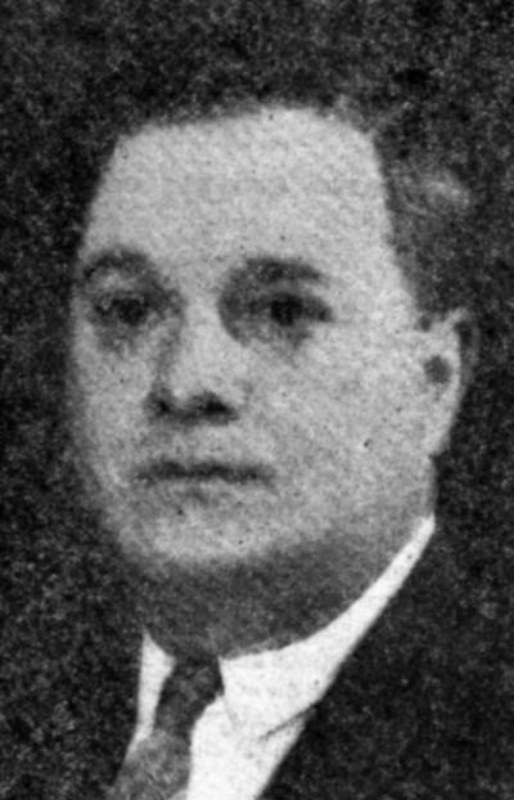Know more:
João Maria dos Anjos
(N. 21 March, 1891 - M. 1956)João Maria dos Anjos (homonym of the Portuguese guitar player with the same name) was born in Lisbon in the old Alcântara district on the 21 March 1891.
At first he played Spanish guitar in the «Tuna 11 de Março» band at Fonte Santa, the place where he also lived. He was roughly 17 years-old. But Spanish guitar was not his cup of tea and so he changed to Portuguese guitar and began to accompany singers, the first being José Carapau (José Peres). (cf. Eduardo Sucena, “Lisboa, o Fado e os Fadistas”, p.61).
Later on he created his own group, which rehearsed at a house in Rua de São Joaquim. By then he also started to sing the fado at a tavern in Rua das Cavalariças do Infante. (This street no longer exists). In the last Thursday of each month a group of fado lovers met there to sing, after dinner. (cf. Eduardo Sucena, “Lisboa, o Fado e os Fadistas”, p.61).
He always remained an amateur singer. "I am not a professional. My life, dear friend, has been my job for 40 years. I began as an apprentice in the smelting business and today I am a clerk." (cf. “Guitarra da Portugal”, 1 October 1946).
João Maria dos Anjos was referring to the Imprensa Nacional, where he began to work at a very young age in the smelting unit, then becoming a typographer and finally a clerk.
He always refused to sign a contract, never abandoning his condition of amateur. A socialist spirit, João Maria dos Anjos was "essentially a poet, who was fond of chanting love and received frequent requests to perform at popular feasts, although he also sang at aristocratic settings, namely at the houses of the Counts of Guarda, Ribeira Grande and Arrochela."(cf. Eduardo Sucena, “Lisboa, o Fado e os Fadistas”, p.61).
At that time descants were the great fashion and João Maria dos Anjos, an inspired improviser, participated in many such descants, competing with singers such as João Junça, José Leitão, José Bacalhau and Joaquim Real. He thus became one of the most renowned and disputed singers of his time, "preferring Fado Corrido but also being a fine performer of Fado Dois Tons. At the place of João da Ermida, at Fonte Santa, he gathered a large number of fans."(cf. Eduardo Sucena, “Lisboa, o Fado e os Fadistas”, p.61)
A few moments to remember in his career:
"Thirty-three years ago, in 1913, newspaper “Canção de Portugal” organised a fado contest at Coliseu dos Recreios. There were prizes for the best singers voted by the audience. The competitors, other than me, were the late Vianinha, Reinaldo Varela, Santos Vidreiro and João Mulato. The house was full. I won the first prize and Varela the second. I must confess it moved me. I was even carried in triumph! It was a night to remember." (cf. “Guitarra da Portugal”, 15 September 1946).
"One night I was at Calçada da Loiça, at Casa Modesta, owned by Manuel Sobral, and this friend of mine, after closing the doors, invited me to go to Benfica and have supper at the old restaurant Bacalhau. We began to eat with a regular appetite. A couple sat at a table. I sang for my friends, at my table. The couple liked it, with great delight, and ordered cigarettes and cigars for our table. When they left a visiting card was given to me. It belonged to the secretary of the Brazilian Embassy. It has been so many years since!" (cf. Guitarra da Portugal, 15 September 1946)
"He created a style that would later be adopted by Carlos Ramos. Although his repertoire included a few compositions by other authors, especially by Avelino de Sousa, João Maria dos Anjos sang mostly his «work»" (cf. Eduardo Sucena, “Lisboa, o Fado e os Fadistas”, p.61).
In July 1956 the “A Voz de Portugal” announced the death of João Maria dos Anjos. In their following edition, they made a memento of João Maria dos Anjos: “With the irreplaceable departure of this dear friend of ours, who so highly dignified the true fado, we lose a figure of the healthy bohemia of the old days…” (cf. “A Voz de Portugal” 20 August 1956)
A public tribute to João Maria dos Anjos was paid at the Salão Júlia Mendes, in Parque Mayer, on the 6 May 1948.
Source:
“Canção Nacional”, 15 January 1928;
“Guitarra de Portugal”, 27 July 1930;
“Guitarra de Portugal”, 15 September 1946;
“Guitarra de Portugal”, 1 October 1946;
“Guitarra de Portugal”, 15 January 1947;
“ A Voz de Portugal”, 20 August 1956;
